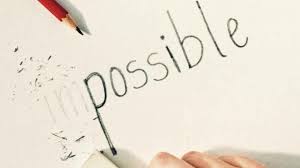Building Confidence
Six Tips for Building Self-Confidence

Self-confidence is defined as a feeling of trust in one’s abilities, qualities, and judgment. Research suggests that it is important to your health and psychological well-being.
Confidence can refer to a general sense of belief and trust in your own ability to control your life, or it might be more situation-specific. For example, you might have high self-confidence in an area of expertise but feel less confident in other areas.
Having a healthy level of self-confidence can help you become successful in your personal and professional life. It can play a role in your motivation to pursue your goals and affect how you present yourself to other people. Research has found, for example, that people who are more confident tend to be more academically successful.
Fortunately, there are things you can do to boost your self-confidence. Whether you lack confidence in one specific area or you struggle to feel confident about anything, these strategies can help.
- Stop comparing yourself to others. Whether you compare how you look to your friends on Instagram or you compare your salary to your friend’s income, comparisons aren’t healthy. In fact, a 2018 study published in Personality and Individual Differences found a direct link between envy and the way you feel about yourself. Researchers found that people who compared themselves to others experienced envy. And the more envy they experienced, the worse they felt about themselves. If you’re feeling envious of someone else’s life, remind yourself of your own strengths and successes. Consider keeping an ongoing gratitude journal to help you focus on your own life and not the lives of others.
- Surround yourself with positive people. Pay attention to how your friends make you feel. Do your friends lift you up or bring you down? Are they constantly judging you or do they accept you for who you are? The people you spend time with influence your thoughts and attitudes about yourself more than you think. If you feel bad about yourself after hanging out with a particular person, it may be time to say goodbye.
- It’s hard to feel good about yourself if you’re abusing your body. On the other hand, if you practice self-care, you know you're doing something positive for your mind, body, and spirit and you'll naturally feel more confident as a result.
- Be kind to yourself. Self-compassion involves treating yourself with kindness when you make a mistake, fail, or experience a setback. It's a way of relating to yourself that allows you to become more emotionally flexible and better able to navigate challenging emotions, and enhances your connection to self and others. Researchers have linked the ability to relate to ourselves in a compassionate way to self-confidence. A 2009 study published in the Journal of Personality found that self-compassion contributes to more consistent confidence. So the next time you're in a challenging situation, recognize that being imperfect or falling short at times is a part of living. Do your best to navigate these experiences with self-compassion.
- Practice positive self-talk. Using self-talk that is optimistic can help you foster self-compassion, overcome self-doubt, and take on new challenges. On the other hand, negative self-talk can limit your abilities and lessen your confidence by convincing your subconscious that you "can't handle it" or that something is "too hard" and you "shouldn't even try.” The next time you begin to think that you have no business speaking up in a meeting or that you are too out of shape to work out, remind yourself that your thoughts aren’t always accurate. Examples of how to challenge pessimistic self-talk and reframe your thoughts into a more positive way of thinking:
• Instead of "I can't handle this," or "This is impossible," try reminding yourself that "You can do it," or "all I have to do is try."
• Instead of "I can't do anything right" when you make a mistake, remind yourself "I can do better next time," or "at least I learned something."
• Instead of you "hate" public speaking, use a milder word like "don't like," and remind yourself that everyone has strengths and weaknesses.
6. Face your fears. Stop putting things off (like asking someone on a date or applying for a promotion) until you feel more confident. The best way to build your confidence is by facing your fears head-on. Practice facing some of your fears that stem from a lack of s self-confidence. If you’re afraid you’ll embarrass yourself or you think that you’re going to mess up, try it anyway. Tell yourself it’s just an experiment and see what happens. You might learn that being a little anxious or making a few mistakes isn’t as bad as you thought. And each time you move forward, you can gain more confidence in yourself, which in the end, will help prevent you from taking any risks that will result in any major negative consequences.
Having self-confidence can bring many benefits at home, at work, and within your relationships. Here's a look at a few of the positive effects of self-confidence:
• Better performance: Rather than waste time and energy worrying that you aren't good enough, you can devote your energy to your efforts. Ultimately, you'll perform better when you feel confident.
• Healthy relationships: Having self-confidence not only impacts how you feel about yourself, but it helps you better understand and love others. It also gives you the strength to walk away if you're not getting what you deserve.
• Openness to try new things: When you believe in yourself, you're more willing to try new things. Whether you apply for a promotion or sign up for a cooking class, putting yourself out there is a lot easier when you have confidence in yourself and your abilities.
• Resilience: Believing in yourself can enhance your resilience, or ability to bounce back from any challenges or adversities you face in life
https://www.verywellmind.com/how-to-boost-your-self-confidence-4163098


